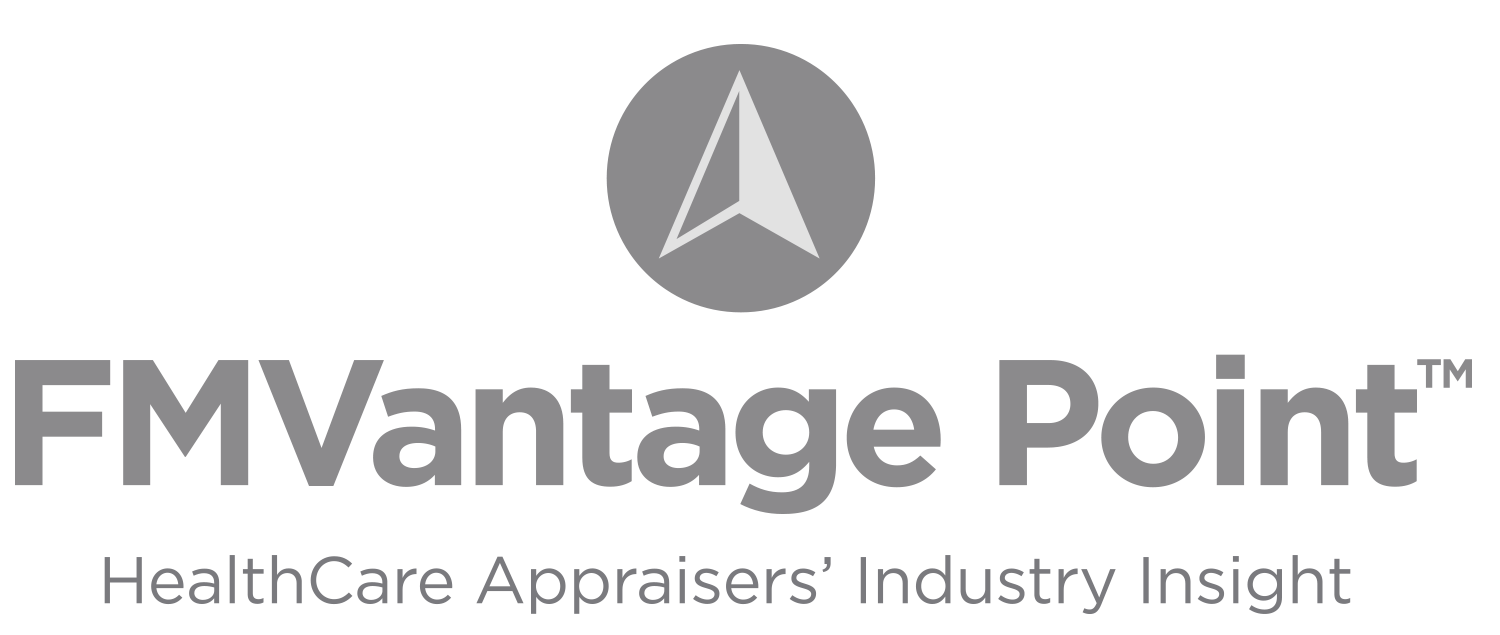Authors: Chris Vaughan and Hunter M. Outcalt, CPA/ABV

![]() DISCLAIMER:
DISCLAIMER:
This FMVantage Point contains a general discussion of current issues and developments regarding Coronavirus disease 2019 (“COVID-19”). The information provided in this article does not, and is not intended to, constitute legal advice; instead, all content in this article is for general informational purposes only.
![]()
![]()
![]()
![]()
![]()
As COVID-19 continues to impose a growing strain on the healthcare infrastructure of the United States, local and federal policymakers are developing new methods to ease the burden on the nation’s hospitals. On March 30, 2020, the Centers for Medicare & Medicaid Services (CMS) took further action in an effort to provide the American healthcare system with additional flexibility to respond to the COVID-19 pandemic.[1] Under the new guidance, CMS is now allowing ambulatory surgery centers (ASCs) to contract with local healthcare systems to provide hospital services or to enroll and bill as hospitals during the emergency declaration. Of the nation’s nearly 6,000 ASCs[2], it is estimated that roughly half are currently affiliated with local hospitals.[3] In its factsheet, CMS notes that it intends for this measure to enable ASCs “to decant services typically provided by hospitals such as cancer procedures, trauma surgeries, and other essential surgeries.” The declaration opens up the potential for thousands of additional patient beds across the country at a time when many hospitals are facing the possibility of a bed shortage.
CMS provided the following guidelines regarding ASC enrollment as a hospital[4]:
![]()
![]()
![]()
![]()
![]()
![]()
![]()
![]()
![]()
![]()
![]()
![]()
![]()
![]()
![]()
![]()
![]()
![]()
![]()
![]()
![]()
![]()
![]()
![]()
![]()
![]()
![]()
![]()
![]()
![]()
![]()
![]()
![]()
![]()
![]()
![]()
![]()
![]()
![]()
![]()
![]()
![]()
![]()
![]()
![]()
![]()
![]()
![]()
![]()
![]()
![]()
![]()
![]()
![]()
![]()
The COVID-19 pandemic has disrupted the usual activities of many industries, with the healthcare industry being particularly impacted. As of April 10, 2020, 35 states have released statements outlining the temporary cessation of elective or non-essential procedures during the COVID-19 outbreak.[5] As ASCs are only permitted to perform outpatient procedures in which they can care for a patient for a maximum of 24 hours, the vast majority of procedures performed at these facilities are considered elective or non-essential. As a result, many ASCs across the nation have temporarily suspended their operations; however, these recent developments should encourage a number of ASCs to restart their operations with a different focus. The following considerations may impact ASC valuations:
![]()
![]()
![]()
![]()
![]()
![]()
![]()
![]()
![]()
![]()
![]()
![]()
![]()
![]()
![]()
![]()
![]()
![]()
![]()
![]()
![]()
![]()
![]()
![]()
![]()
![]()
![]()
![]()
![]()
![]()
![]()
![]()
![]()
![]()
![]()
![]()
![]()
![]()
![]()
![]()
Given the uncertainty of the length of time the industry will be impacted by the COVID-19 pandemic, it will be important to consider these factors, among many others, on both a short and long-term basis as part of any valuation assignment. Due to the effects of the global pandemic, publicly traded stock prices have fallen from their previous highs, and private companies would not be expected to be shielded from similar declines in value. However, private companies, including ASCs, that effectively adapt and navigate the newly available assistance options should be able to emerge from the COVID-19 pandemic with a less severe impact to its financial position and potentially poised for a quick recovery. Each situation is unique and will require a valuator to understand the impacts of the above scenarios, among many others. HAI has extensive experience in both ASC and hospital valuations and is uniquely positioned to provide clients with an accurate and defensible valuation analysis during this unprecedented period. HAI has also expanded its website to include many COVID-19-related resources, which can be found below:
[1] Centers for Medicare & Medicaid Services. (2020). Additional Background: Sweeping Regulatory Changes to Help U.S. Healthcare System Address COVID-19 Patient Surge [Fact Sheet]. Retrieved from https://www.cms.gov/newsroom/fact-sheets/additional-backgroundsweeping-regulatorychanges- help-us-healthcare-system-address-covid-19-patient
[2] Centers for Medicare & Medicaid Services. Fast Facts (November 2019)
[3] Szabo L. and Anthony C. (2020, March 30). More Than 5,000 Surgery Centers Can Now Serve as Makeshift Hospitals During COVID-19 Crisis. Kaiser Health News https://khn.org/news/more-than-5000-surgery-centers-can-now-serve-as-makeshift-hospitals-during-covid-19-crisis/
[4] Centers for Medicare & Medicaid Services. (2020). Guidance for Processing Attestation Statements from Ambulatory Surgical Centers Temporarily Enrolling as Hospitals during the COVID-19 Public Health Emergency. Retrieved from https://www.cms.gov/files/document/qso-20-24-asc.pdf
[5] Ambulatory Surgery Center Association. (2020). State Guidance on Elective Surgeries. Retrieved from https://www.ascassociation.org/asca/ resource-center/latestnewsresourcecenter/covid-19/covid-19-state
[6] Centers for Medicare & Medicaid Services. (2020). Expansion of the Accelerated and Advance Payments Program for Providers and Suppliers During COVID-19 Emergency [Fact Sheet]. Retrieved from https://www.cms.gov/files/document/Accelerated-and-Advanced-Payments-Fact-Sheet.pdf
[7] Medicare Payment Advisory Commission. (2020). Report to the Congress: Medicare Payment Policy http://www.medpac.gov/docs/default-source/reports/mar20_entirereport_sec.pdf?sfvrsn=0
